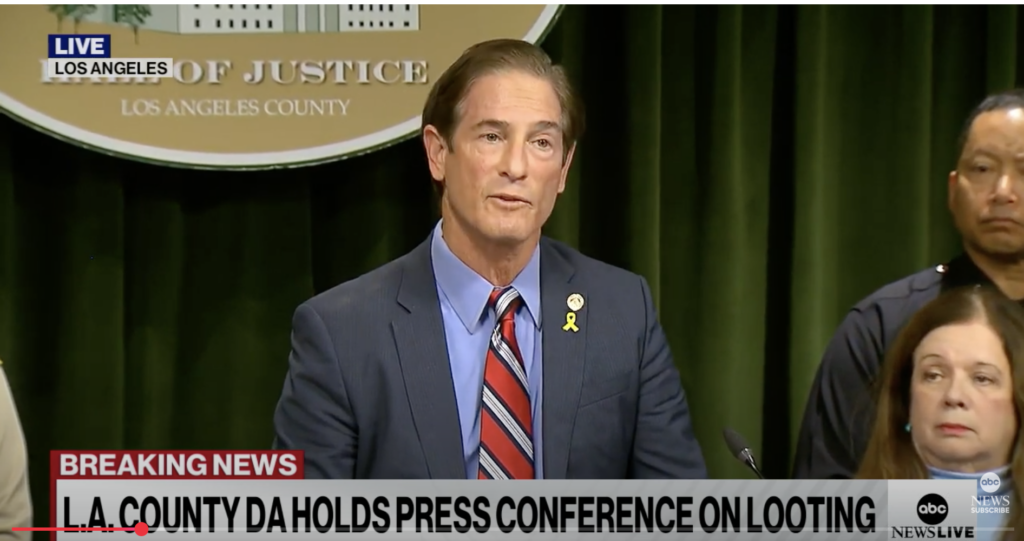UNRWA offers no info on looting of 98 aid trucks- Washington Examiner
The United Nations Relief and Works Agency (UNRWA) is facing challenges regarding the looting of nearly 100 humanitarian aid trucks in Gaza. Spokesperson Stephane Dujarric confirmed that there is no detailed information about the assailants, who carried out the robbery at gunpoint near the Kerem Shalom border. Tensions in the region have led to rising lawlessness, with armed groups competing for resources amidst the ongoing conflict.
The agency reported that personnel were forced to unload most of the aid by armed criminals, highlighting the difficulties in providing humanitarian assistance. While UNRWA has criticized Israeli authorities for failing to meet their legal obligations to ensure safe aid delivery, they do not accept protection from them or any warring parties. Dujarric emphasized the importance of community support for the safe delivery of aid, a notion that has become increasingly challenging as remaining Hamas forces and criminal gangs exploit the situation.
The Hamas security forces have also struggled to maintain order and crack down on looters, demonstrating the complexity of the security landscape in Gaza amid ongoing violence and instability.
UNRWA stumped over 98 looted trucks as Hamas jostles with gangs for resources
The United Nations can offer no information regarding suspects in the looting of almost 100 humanitarian aid trucks that took place last weekend in Gaza as lawlessness and black markets spread across the region.
Stephane Dujarric, the spokesman for U.N. Secretary-General Antonio Guterres, was asked at a Monday press conference for updates on the Saturday robbery that was carried out at gunpoint near the Kerem Shalom border crossing.
“When armed people try to take control of a vehicle and goods, we’re not asking questions, and they’re not wearing insignias,” Dujarric told the press.
Pressed for any relevant information, the spokesman reiterated that U.N. officials “do not have that kind of granular detail right now.”
The U.N. Relief and Works Agency for Palestine Refugees in the Near East announced the interception of humanitarian aid on Monday, explaining that personnel were forced by armed criminals to unload the vast majority of the trucks before the contents could be properly distributed.
UNRWA blamed Israeli authorities for “continu[ing] to disregard their legal obligations under international law to ensure the population’s basic needs are met and to facilitate the safe delivery of aid.”
However, UNRWA does not accept Israeli protection for its humanitarian aid convoys nor “protection from any warring party.”
“The best protection for us is the community, right?” Dujarric said at the Monday press conference. “The best protection for us is for people to know that aid will come in every day at massive levels.”
This reliance on the community for protection has become untenable as remaining Hamas combatants and marauding gangs vie for resources entering the Gaza Strip.
“Throughout the war, we’ve heard stories about how there are gangs and there are tribes and lawless areas where different people are exploiting the situation to not only harm civilians but also to steal aid and then sell the aid,” said Seth Frantzman, the author of The October 7 War and an adjunct fellow at the Foundation for Defense of Democracies. “I think you never know necessarily where the Hamas aspect ends and the gangs and lawlessness begin.”
The Hamas security forces, an ostensible police outfit operating as an enforcement arm of the terrorist organization, have been a target of the Israeli military since the beginning of hostilities on Oct. 7 of last year.
The crippled Hamas-affiliated police force remaining in Gaza has attempted to crack down on black market looters, going so far as to shoot suspected criminals, according to the Financial Times.
“It’s clear that Hamas has pretty strong control over Central Gaza — which is an area of four different urban areas, generally called the central camps. It consists of a place called Maghazi, Nuseirat, Deir Al Balah,and Bureji. It’s four different places. And I think it’s clear that Hamas has very firm control over the area,” Frantzman said. “In other parts of Gaza, it’s much less.”
A lack of aid deliveries has thrown large swaths of the Gaza Strip into a state of virtual lawlessness as civilians are forced to scrounge for food and supplies on the black market. The gaps in aid distribution that Hamas is unwilling or unable to address are now filled by aid thieves and smugglers — at a comfortable profit.
The number of Hamas personnel who continue to operate within the law enforcement services is nearly impossible to calculate due to both high casualties and the abandonment of uniforms to avoid unwanted attention.
" Conservative News Daily does not always share or support the views and opinions expressed here; they are just those of the writer."





Now loading...